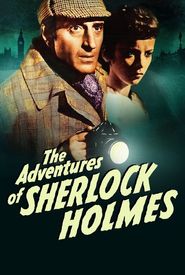Edwin Harvey Blum's early life was marked by his relocation from San Francisco to Los Angeles in 1933, driven by his ambition to pursue a career in screenwriting in Hollywood. Initially, he found employment as a ghost writer and assistant to Ernest Pascal, who would later serve as the third president of the Screen Writers Guild from 1935 to 1937.
In 1938, Blum was hired under contract by 20th Century Fox, where he co-wrote the imaginative script for The Adventures of Sherlock Holmes, based on the stage play by William Gillette rather than the original stories by Arthur Conan Doyle. This was followed by his work on the original screenplay for the musical comedy The Great American Broadcast, starring Alice Faye, before he began free-lancing for various studios, including Columbia, MGM, and Paramount.
Blum's solo effort on The Canterville Ghost in 1944 earned him critical acclaim, and he was subsequently nominated, along with Billy Wilder, for a Writers Guild Award for the World War II prisoner-of-war drama Stalag 17 in 1953.
In addition to his work in film, Blum made occasional forays into writing for the stage. However, his two attempts at Broadway in 1936 and 1938 were notable failures. It wasn't until 1960 that he experienced success on the stage, winning a Ford Foundation Prize for "The Saving Grace".
During the 1950s, Blum's focus shifted towards Democratic politics, resulting in a significant decrease in his contributions to the screen. In 1950, he became involved in managing former actress Helen Gahagan's unsuccessful senatorial bid against Richard Nixon in California. It is entirely conceivable that Nixon's nickname "Tricky Dick" - first uttered in a speech by Gahagan - originated with Edwin Blum.
Blum's other work during this period involved writing jokes or speeches for presidential candidates Adlai Stevenson and Hubert H. Humphrey. He continued to write, albeit sporadically, for television until his retirement in 1977.


































